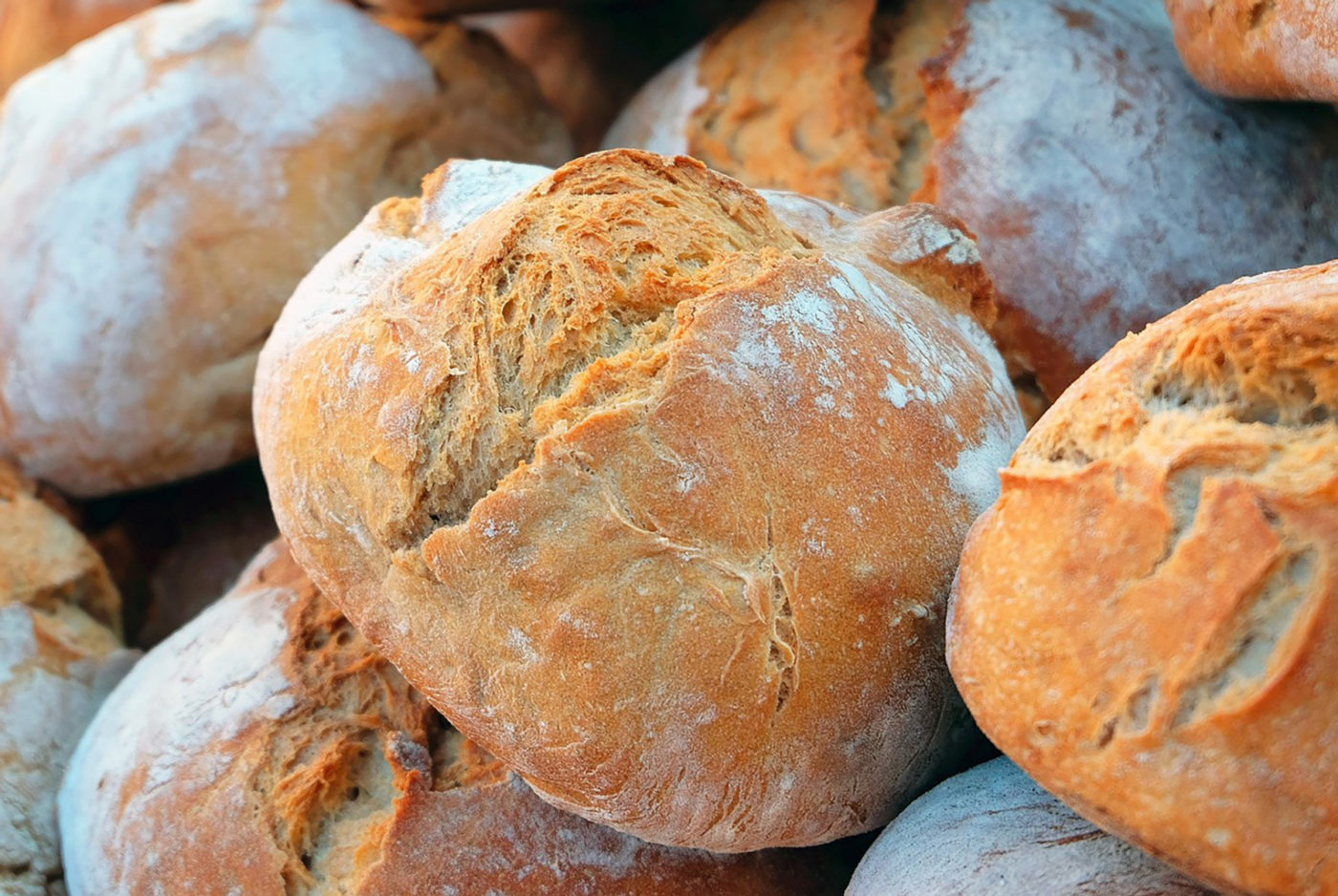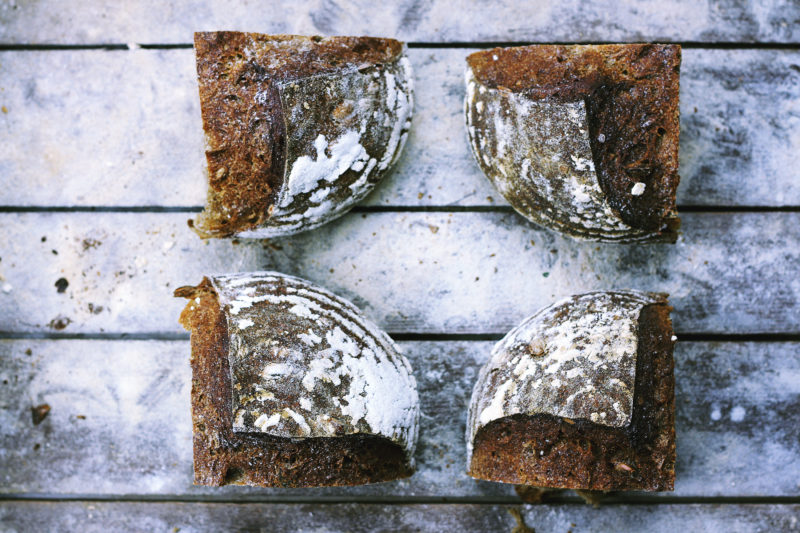Three years ago my second book, which I had written as an act of obedience, was published. Since God called me to write it and clearly carried me through the writing of it, I thought He would make it commercially successful. He didn’t. In terms of sales, it was an utter failure. I was confused and hurt and angry: had I misheard? Had I wasted my time? What was going on?
Six months later I found myself at Laity Lodge (www.laitylodge.org/). Early one morning, I got up and walked out to Sanctuary, an interactive sculpture on the grounds. Seating myself inside and looking up at the Texas sky, I asked God for clarity, for a vision: what was my writing for?
Immediately, an image came to mind. A plate filled with pieces of broken bread. I shoved the image aside and waited. Again, I saw in my mind’s eye a plate of broken bread. I shook my head, cast the image from my mind, and stared harder at the sky. No use. Broken bread again filled my thoughts. Well, that’s rich, I thought. A prosaic plate of passive bread crumbs. Thanks a lot, God. And I promptly forgot about this little vision-quest.
I shouldn’t have been so insulted. And I certainly shouldn’t have been surprised. The Eucharistic bread and wine have been a central part of my spiritual life for 20 years; writing is also a central part of my spiritual life; of course the two go together. Also, the image of broken bread and the story in which it is found have recurred in my life at important times. On my wedding day our pastor read the story of the feeding of the 5,000 and told my husband and me, “If you remember nothing else about this day, I want you to remember this: Jesus is more than enough.” In the dark days of postpartum depression after my first son was born, days in which I felt lost and fragmented and frightened, the words of Jesus after the feeding of the multitude promised hope and joy: “Gather up the fragments,” he said, “that nothing may be lost.”
Nineteen months after my visit to Sanctuary, the image of the broken bread returned again. I had been broken in those months, over and over again. I felt fragmented, even shattered. And into this brokenness came the image of the bread as a symbol of my writing life.
My original irritation with the image nineteen months before had been that it was passive and prosaic. Apparently I wanted an image that was at least beautiful or interesting or active. As I pondered the image, I was struck by the thought that when Jesus broke the bread on the mountain, He fed it to a multitude. Hm. Maybe being broken bread wasn’t so bad after all. My words had been feeding so few for so long that the 5,000 on the hilltop seemed like a dream come true. Was that the promise of this image? I clung to it, hoping that if I just kept writing, I would feed multitudes.
Do you see the problem? I.
If I kept writing, I would feed multitudes. I still saw the words as mine.
Slowly—oh so slowly—I realized that the promise inherent in the image was not that broken bread feeds a multitude. That was only my way in, the idea that allowed the image to break through my distaste. Rather, it was in the very passivity of the image—the passivity which I disliked—that the promise came. If my writing was to be broken bread, I had to give it to Jesus. After all, He surrendered equality with God to become the Bread of the world, broken for many. If I wanted my words to feed anyone, let alone many ones, I had to surrender my writing. I had to be willing to give the words to Him, let them lie passive in His hands, feeding not whom I willed but whom He willed. Sometimes, the bread He broke fed a multitude. Sometimes, it fed a small group of His friends, as in the upper room on Passover. Broken bread doesn’t get to dictate where or when or by whom it is eaten. It simply lies where it is placed and feeds those to whom it is given, be they many or few, rich or poor, great or small.
It is not easy to be broken bread. That is why I have taken so long to embrace this image—and why it continues to be something I’m learning to be and to do. To be broken bread requires, as Hannah Whitall Smith writes, “an interior abandonment of the rarest kind. It means that we are to be infinitely passive, and yet infinitely active also; passive as regards self and its working, active as regards attention and response to God.”
The active part is the writing of the words—there must be bread before it can be broken. I must write, attentive and responsive to God: are these words true? are they beautiful? do they point beyond themselves? And I must write well—there is no excuse for shoddy workmanship in the kingdom of God. The Lord does not want a stale cast-off from the compost heap. He can use that, certainly, if that’s the best I can offer. But over time, as I hone my craft, my best becomes better, and always I must give Him my best—fresh bread, kneaded and baked as close to perfection as I can manage. My words won’t, of course, be perfect because I’m not perfect. They will, of course, be broken even in the making of them, because I am broken. But when they are crafted with attentiveness and care to the best of my ability, they are no less lovely for their brokenness.
After the “infinitely active” work of writing comes the “infinitely passive” work of placing my writing in the hands of God to do with as He will. Though they are broken when I give them, it is the offering that completes the breaking because that is an act of surrender, of giving up, of letting go. It is the interior abandonment. The words are in God’s hands now to bless whom He will. The gathered masses or a single man. To Him the one is no less important than the other.
And that’s part of the breaking, too—working so hard at my craft for so many years and being content with one reader, one person blessed by those hard-won words. That feels like breaking—the breaking of a dream to connect with others, to sit at the table and play the writing game with writers I respect and enjoy, to be one of the writers people respect and enjoy. All that lies in the hands of God, broken bread to be given back or given away, as He chooses.
It takes a long time to be broken enough that One is enough. Often I am not, but in my best moments, I know that my pastor’s words at my wedding were true: Jesus is more than enough. In my best moments I know that yes, absolutely, one is enough—one is more than enough—and I also know that not one word is lost. Jesus gathers them all, holds them all, and those gathered words I thought were lost are food for His people, too. When Jesus fed the multitude, there were 12 baskets left over, one for each of the disciples, one for each tribe of Israel. Somehow, someway, some day, all those words we thought were lost or forgotten will be restored to us—and we’ll see, too, who it was they fed.
Without the breaking of the bread, there could be no sharing of the bread. The bread could not even be eaten.
It would merely sit there on the board, getting stale and moldy. But with broken bread Jesus fed a multitude and still had plenty of leftovers. With broken bread Jesus gathered the leftover fragments without losing a single one. With broken bread Jesus, the very Word of God, handed His body to His disciples and bid them eat.
And He still does.
It is with much joy that I welcome K.C. Ireton to the family of guest contributors to Cultivating the Good, the True, and the Beautiful.
K.C. is one of the finest writers I know and she has been an inspiration to me for as many years as I have known her.
Find out more about her at her lovely website – http://www.kimberleeconwayireton.net/ and enjoy the beauty you find there!
K. C. Ireton is a multi-published author of both fiction and nonfiction books, including The Circle of Seasons: Meeting God in the Church Year and A Yellow Wood and Other Stories. She and her daughter, Jane, co-host Lantern Hill, a podcast for people who love books, children, and God. Visit kcireton.com to learn more about her work and download the first two chapters of her most recent book. Or visit her on Substack at kcireton.substack.com, where she publishes stories and liturgies.
Leave a Reply
A Field Guide to Cultivating ~ Essentials to Cultivating a Whole Life, Rooted in Christ, and Flourishing in Fellowship
Enjoy our gift to you as our Welcome to Cultivating! Discover the purpose of The Cultivating Project, and how you might find a "What, you too?" experience here with this fellowship of makers!




“Though they are broken when I give them, it is the offering that completes the breaking.” Oh my gosh, as one wordsmith to another, you are speaking some deep and beautiful truths. So glad (and thank you!) Ms. Lancia has welcomed you to this space–you are “one of the finest writers I know.” Well done.
Jody, Thank you! You are one my biggest and dearest cheerleaders. And you live the broken bread with me, for which I am so grateful.
[…] written for Lancia, and it would bless me (and her!) no end if you would take a moment to hop over, read the rest of the essay, and leave a short comment. Thank you so much! While you’re there, you might want to poke around—Lancia takes […]
I’m so glad you pointed me here, Kimberlee. After we spoke I made my way over here to this feast, and I am so glad I did. Thank you for sharing this, for breaking bread, and for always inviting me to sit beside you at your table. This here is an offering, it’s feeding me. Love you, my friend. Looking forward to what God is going next. XO
Kris! It’s lovely here, isn’t it? I told you so 🙂 I am *so happy* I got to introduce you to Lancia’s beautiful blog. Thanks for reading…I’m so glad my little bit of bread fed you. Always that’s what we pray, right? That the offering will bless others. XO to you, too.
Just shared your post on broken bread over at Lancia’s. What good, sane and gracious words for all of us who write or in any way aspire for others to see our art meet the public for the Kingdom of God. God’s glory is sticky. Take a look at Geezer 1 to see the post on Facebook. Your book lists are there too as the group has many parents with young children. Risk a sip from the firehose…I love that comment and will give you a footnote when I use it. Blessings on all your livestock.
Thanks, Dave. K.C. is a remarkable writer and I think you are going to love the exploration of her beautiful work!
Jody, thanks for your presence here. I am so delighted to have KC sharing with us and that you two are connected!
Welcome to Cultivating, Kris! We are so happy to have you here. You have beautifully good taste in writers if you are following Kimberlee! Already kindred! 🙂
Oh. Mm. I’ve had something simmering in the back of my mind for months, in which this Scripture passage plays a part. This pierces me right between the “I don’t know if this is actually a book” and the “I’m not really sure I’m supposed to write it.” Thank you. I’ll be at my desk.
Becka, I’m saying a prayer for you right now, that God would give you clarity about what it is you’re supposed to write. And perseverance to keep trying to write it till it’s what it’s supposed to be. (It took me four drafts to get this essay to what you read…and that after ten months of pondering.) “At my desk” is a good place to be to figure this stuff out! May God bless the work of your hands.
Lancia – I can’t recall if I’ve commented previously, though I visit often. Your space here feels sacred and I have been afraid of spoiling it with unnecessary words. These few are by way of encouragement to Kimberlee.
“I had written as an act of obedience…In terms of sales, it was an utter failure.”
One of the great mysteries of God’s call is that it is only to obedience, and not to promised results. Obedience does, however, offer a joyous prospect.
My parents, each with their own clear calling, gave 16 and 18 years of their lives to pioneer missionary work in the jungles of Papua New Guinea, and at the end, the harvest seemed very small. But what they believe/d with confidence, is that God rewards faithfulness, not results.It made all the difference.
Though I think we often lose sight of it (most especially, perhaps, in the age of social media comparison) there can be no greater reward for obedience, than to hear, “Well done, my good and faithful servant. Enter into the joy of your Master.”
Judy, thank you so very, very much for your kind, strengthening words. Your presence here is such a blessing and I am deeply grateful for what you have shared, especially about Cultivating being a sacred space and the calling to obedience not specifically to “success”. Thank you. And may God’s richest blessings dwell with your remarkable parents both in this world and at Home. Write as often as you would like to, Judy, and know that your words are sacred here, too. Blessings to you and yours!
Hi Judy. Thank you for these words: “God rewards faithfulness, not results.” Amen. One of my oft-returned to quotes about this comes from The Scent of Water by Elizabeth Goudge. She is writing from the perspective of a blind poet and playwright: “The mysterious power that commanded men appeared to him to ask of them only obedience and the maximum of effort and to remain curiously indifferent as to results.” That is a hard pill to swallow, but a needful one, for only when we turn the results over to God are we freed to work for the joy of the task before us. Thank you, too, for your reminder of that glorious line that comes to those who trust and obey, “Well done, good and faithful servant.”
SO much beauty and wisdom in these words, Kimberlee. I’m going to print out this post and prayerfully journal such eye-opening, spirit-touching statements as: putting my writing in God’s hands as an offering, to bless whom he will. Gathered masses or a single man — it doesn’t matter. One is as important as the other. Thank you for your soul-bearing honesty. I pray abundant blessing upon you AND your work!
Thank you for writing such a meaningful post. Your vulnerable honesty is refreshing and the message one that reaches directly into my heart. I shared the link with some of my writer friends. Thank you.
Thank you for your warm welcome, Lancia.
Thank you Kimberlee – and Lancia for creating the space – for an open and uplifting piece. Making the link between broken bread and our creative pursuits is very helpful.
You are most welcome, David. And welcome to Cultivating!
Delighted to read this today! Thank you!
So appreciate the broken bread you fed me with tonight Lanciae.
Really needed that encouragement.
Nothing’s wasted that’s left in his hands.
I’m going to buy your collaboration book ‘Women and C S Lewis. He’s one of my literary heroes too.
God bless you richly.
Baruch Haba B’shem Adonai.
(Blessed is he or she who comes in the name of the Lord.) Shalom.
Eric Holman
Greymouth
New Zealand.
Eric, thank you for your kind words. We are delighted to have you here and hope you find Cultivating a true resting place. Many blessings to you and yours always. Please do stay in touch. We are honoured to have you with us! I think you will enjoy Women and C.S. Lewis. You might also enjoy the good work done is C.S. Lewis at Poets’ Corner. Lewis is certainly my hero and literary mentor! 🙂
Carol, Thank you for taking a moment to respond to my piece. I’m so glad it blessed you. I pray you and I both continue to place ourselves in the Hands of the One who knows us best and always has our best in His Heart.
Thank you, Nancy. I pray abundant blessing on you and your work, too!